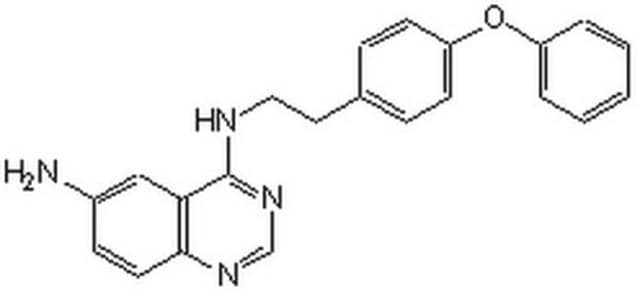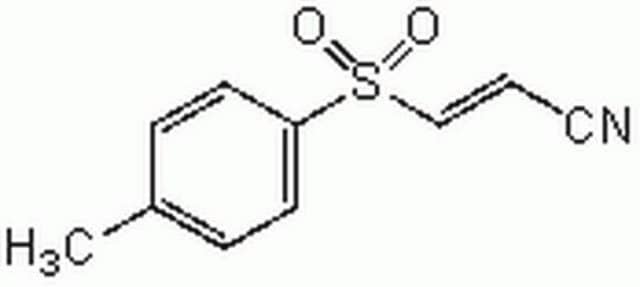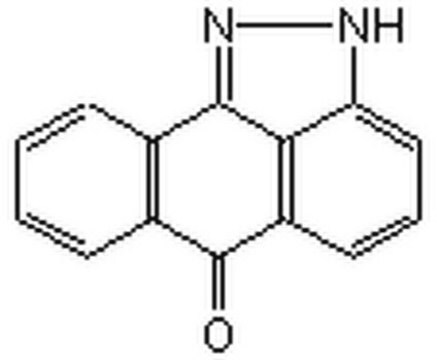513001
PD 98059
InSolution, ≥98%, 5 mg/ml, reversible inhibitor of MAP Kinase Kinase (MEK)
Sinónimos:
InSolution PD 98059, MEK Inhibitor V
About This Item
Productos recomendados
Quality Level
assay
≥98% (HPLC)
form
liquid
manufacturer/tradename
Calbiochem®
storage condition
OK to freeze
protect from light
shipped in
wet ice
storage temp.
−20°C
InChI
1S/C16H13NO3/c1-19-14-8-4-6-11(16(14)17)15-9-12(18)10-5-2-3-7-13(10)20-15/h2-9H,17H2,1H3
InChI key
QFWCYNPOPKQOKV-UHFFFAOYSA-N
General description
Biochem/physiol Actions
MAP kinase kinase (MEK)
Packaging
Warning
Physical form
Reconstitution
Other Notes
Dudley, D.T., et al. 1995. Proc. Natl. Acad. Sci. USA92, 7686.
Langlois, W.J., et al. 1995. J. Biol. Chem.270, 25320.
Pang, L., et al. 1995. J. Biol. Chem.270, 13585.
Waters, S.B., et al. 1995. J. Biol. Chem.270, 20883.
Selected Citations
Lee, J., et al. 2009. Cell Stem Cell5, 76.
Legal Information
Storage Class
10 - Combustible liquids
wgk_germany
WGK 2
flash_point_f
188.6 °F - closed cup - (Dimethylsulfoxide)
flash_point_c
87 °C - closed cup - (Dimethylsulfoxide)
Certificados de análisis (COA)
Busque Certificados de análisis (COA) introduciendo el número de lote del producto. Los números de lote se encuentran en la etiqueta del producto después de las palabras «Lot» o «Batch»
¿Ya tiene este producto?
Encuentre la documentación para los productos que ha comprado recientemente en la Biblioteca de documentos.
Nuestro equipo de científicos tiene experiencia en todas las áreas de investigación: Ciencias de la vida, Ciencia de los materiales, Síntesis química, Cromatografía, Analítica y muchas otras.
Póngase en contacto con el Servicio técnico








